B.B. Free #1
Written by Gabby Rivera
Illustrated by Royal Dunlap
Boom Box
Sometimes the end of the world as we know it isn’t a moment to weep for what is lost, but cheer for what is ahead. With B.B. Free #1, writer Gabby Rivera offers a post-apocalyptic adventure that is ripe with possibilities and filled with good-natured bravery on the part of her character B.B. B.B. Free #1 takes the disasters we face and turn them into something the children of the future have moved beyond as they find their own place within the world that exists for them.
B.B. lives in Gainesville, Florida — or more precisely, the Florida Islands. It’s the year 2232 and a lot has happened to reconfigure the map and also the population that exists within it. Thanks to flooding, Florida is a series of scattered, small landmasses that sit at the southern-most point of the Fractured States of America, which B.B. wants to see more of.
To do that she is conspiring with her friend Chulita to take a road trip within the Fractured States and broadcast a radio show as they travel — it’s part of something called “freedom fifteen,” a coming-of-age ritual that B.B.’s father seems to be opposed to. B.B.’s quietly forging ahead with her plan, even though her father is trying to commandeer her “freedom fifteen” experience to keep her at home and working at a lunch service that he operates.
Just about everything in B.B. Free #1 runs counter to the post-apocalyptic tropes as they are currently presented in entertainment and this freshness bursts forth on every page. The Florida Islands themselves are rendered by Royal Dunlap’s beautiful and playful illustrations as partly a whimsical fantasyland, though with a touch of foreboding danger lurking inside. B.B. herself is an animated and joyful presence whose place within the landscape offers a positivity that is typically missing in these kinds of stories, which adds a tone to the unfolding adventure that promises to be as different from the norm as this intro issue is.
But while the approach of B.B. Free #1 is skewed to the uplifting, it’s obviously addressing some serious concerns within its story. Environmental havoc and economic inequality are both a part of its purview, and its focus on a Latinx family and people of color seems to me central to the story being told. If the apocalyptic past that is related in the story points to anything, it’s the dismantling of a world that favored the dominance of the monied class of white people and seems to have reframed the racial hierarchy in some manner that B.B. herself presents as liberating. Considering the sheer number of end of the world survivor narratives that exist around the idea of preserving white cultural structures, particularly the masculine ones, B.B. Free #1 makes a simple stand for the concept of other perspectives in these stories being needed, and suggest that these perspectives, beyond their political and social strengths, can also offer fresh approaches to old narrative standards.
This is especially apparent in the way gender roles are approached in B.B. Free #1. Much is made of B.B.’s relationship with her father, of his frequent admonitions for her to “be a good girl,” and the idea that doing so is not by her own definition, but his. B.B. is expected to conform to her father’s idea of what is presentable, and he forms these around gender conventions. Presentability is a nice dress, for instance. B.B., though, wants to seize her “freedom fifteen” in all the possible meanings of the word “freedom” — that is, freedom to define herself, freedom to create her own definition of what “good girl” means, freedom to decide if she even wants to be a good girl and, of course, freedom to chart her own course that is not beholden to her father’s desires.
B.B. Free #1 does all this by focusing on and celebrating B.B.’s cleverness rather than her physical abilities. Where so many other modern post-apocalyptic stories define a woman’s victory as becoming a “badass,” which typically means turning to violence and becoming commanding figures in fights, B.B. Free #1 suggests that there is much more to a woman’s role in this trope and it doesn’t need to conform to masculine ideas of being a successful survivor. The woman can also brave the unknown and embrace the freeing of information as her weapon, exhibiting a spirit that isn’t beholden to anyone else but her own self.


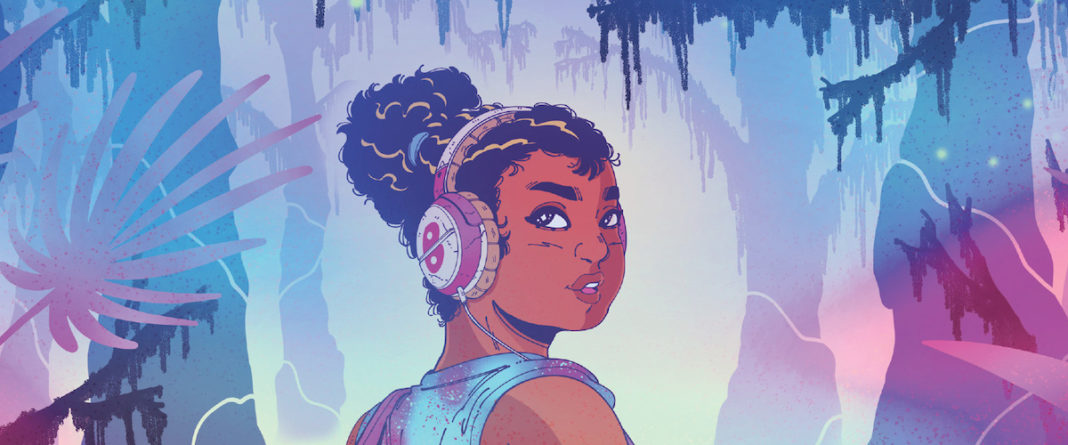
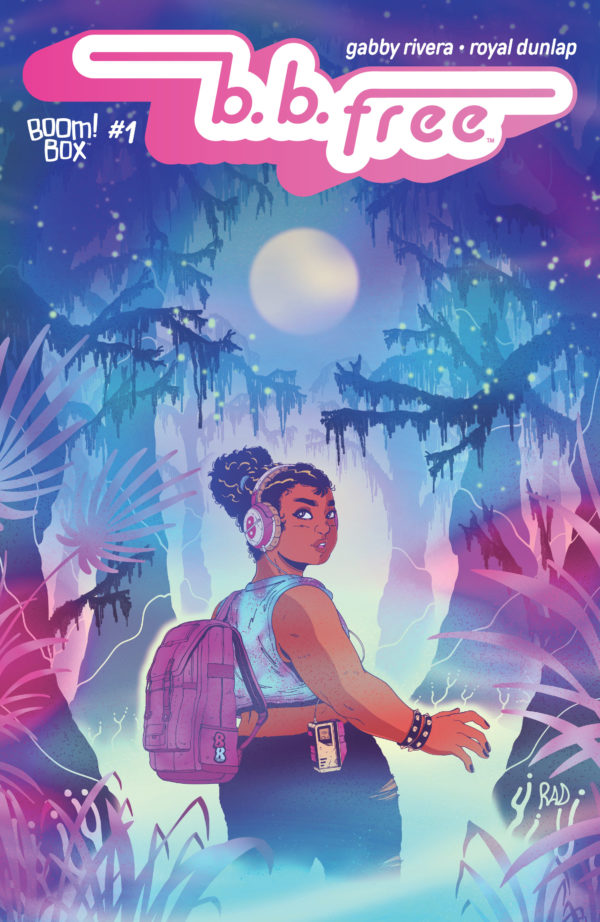
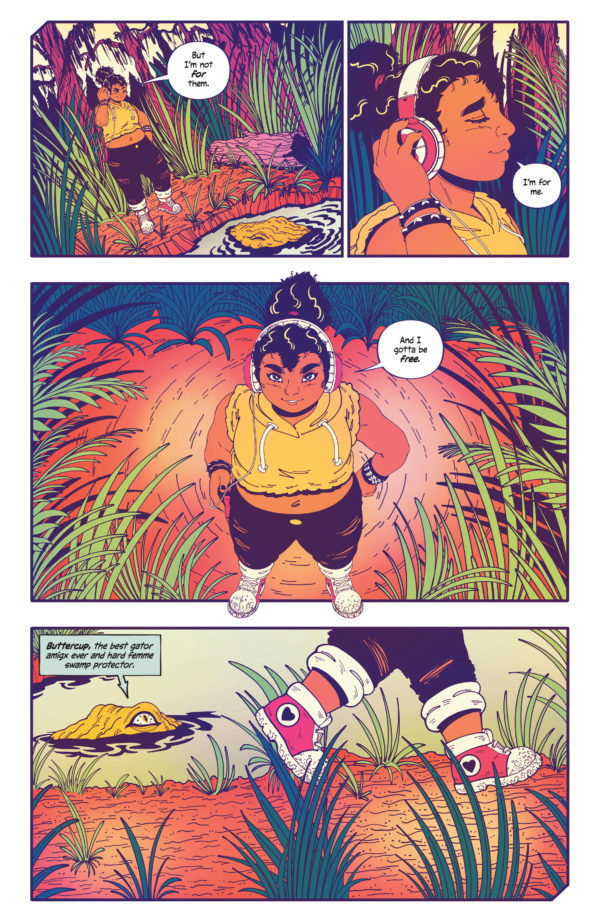
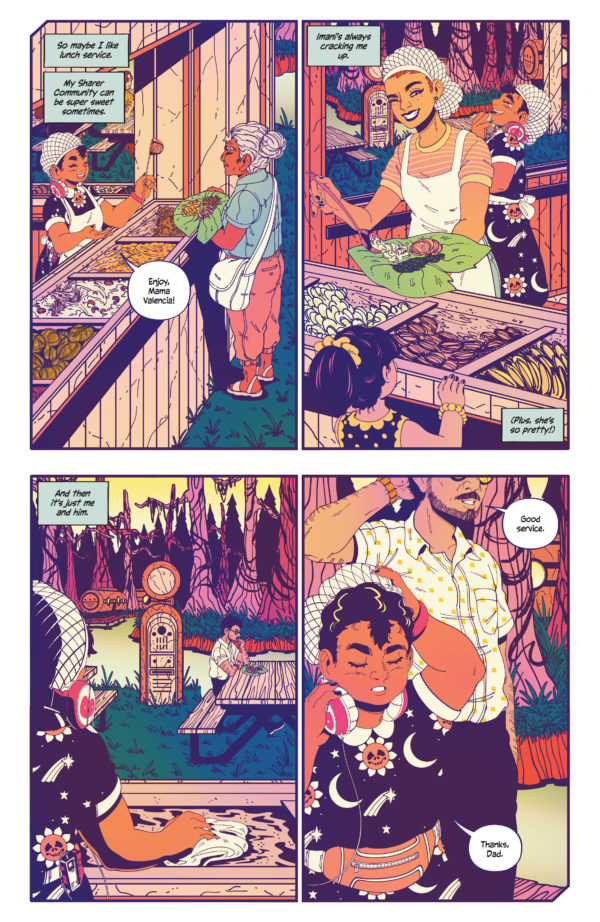

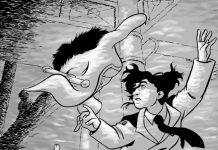





It’s good because it exists, not because it’s good.
Comments are closed.